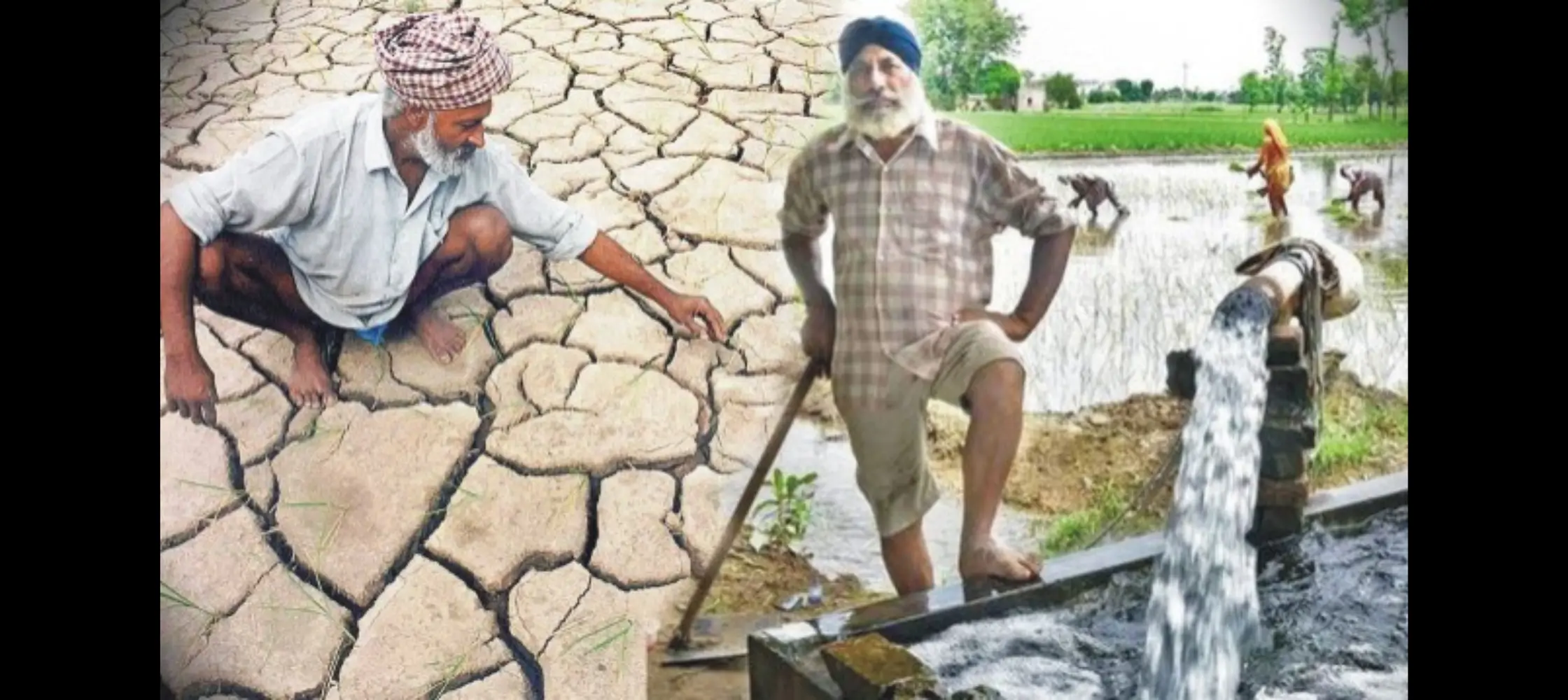
The Rising Panjab Bureau
Punjab, once celebrated as the "Granary of India," is now standing at the brink of an unprecedented water crisis. The overexploitation of groundwater, exacerbated by unsustainable agricultural practices, poses a severe threat not only to the state's immediate future but also to the generations to come. The gravity of the situation calls for an urgent need for corrective measures.
Punjab, with its fertile soil and abundant water resources, was historically a thriving agricultural region. However, over the years, unchecked exploitation of groundwater has led to a drastic decline in water tables. A few decades ago, the state's rivers flowed generously, supporting a flourishing ecosystem and ensuring water security. Today, the scenario is starkly different, with many of these rivers reduced to mere rivulets.
Agriculture, the backbone of Punjab's economy, is also the primary driver of its water crisis. The introduction of water-intensive crops like paddy, which is not native to the region, has significantly contributed to the rapid depletion of groundwater. The paddy-wheat cropping system, while essential for the state's economy, has become unsustainable in the long run due to its high water consumption.
According to a study conducted by the Punjab Pollution Control Board a few years ago, an alarming 14 lakh tubewells in the state pump out enough water within five days that can meet all domestic and industrial requirements of the state for over a year and a half. This overreliance on groundwater for agricultural needs, coupled with inefficient water management practices, has pushed the state to the brink of a water catastrophe.
Adding to Punjab's water woes is the alarming detection of arsenic and fluoride in groundwater beyond permissible limits for human consumption. This contamination poses a grave threat to public health, demanding urgent attention and comprehensive solutions. The consequences of consuming contaminated water are far-reaching and could lead to a health crisis of immense proportions if left unaddressed.
The state's once-mighty rivers, such as the Beas and Sutlej, have witnessed a dramatic reduction in their flow over the years. This decline is not only detrimental to the aquatic ecosystem but also exacerbates the groundwater crisis. The historical data on river flow in Punjab paints a grim picture, highlighting the urgent need for sustainable water management practices.
The current situation demands a collective and immediate response from policymakers, political leaders, and the community at large. Ignoring the impending water crisis is not an option; it is a self-defeating approach that will have severe repercussions for Punjab's future generations.
Policymakers must initiate stringent measures to regulate groundwater extraction, especially in overexploited and critical areas. Implementing and enforcing water conservation practices, such as rainwater harvesting and promoting efficient irrigation technologies, is crucial. The state government should also consider revisiting agricultural policies to encourage the cultivation of crops that are better suited to Punjab's ecological realities.
The shift towards sustainable agricultural practices is imperative. Farmers should be incentivized to adopt crop patterns that require less water, and research institutions can play a vital role in developing and promoting drought-resistant varieties. It is crucial to strike a balance between economic interests and environmental sustainability to ensure the long-term viability of Punjab's agriculture.
Creating awareness among the public about the gravity of the water crisis is paramount. Education campaigns on responsible water usage, the impact of water-intensive crops, and the importance of preserving water sources can contribute to a collective understanding of the issue. Engaging communities in water conservation initiatives fosters a sense of responsibility and ownership.
Punjab's water crisis is not a distant, hypothetical scenario; it is a stark reality that demands immediate attention and decisive action. The depletion of groundwater, contamination issues, and dwindling river flows collectively paint a grim picture of the state's future. The onus is on policymakers, political leaders, and every citizen to work collaboratively to reverse the current trajectory and ensure a sustainable water future for Punjab. The alternative—desertification of the land that was once the breadbasket of the nation—is a fate that must be averted at all costs.
Your email address will not be published. Required fields are marked *
29 Jan, 2024
29 Jan, 2024
29 Jan, 2024
25 Jan, 2024